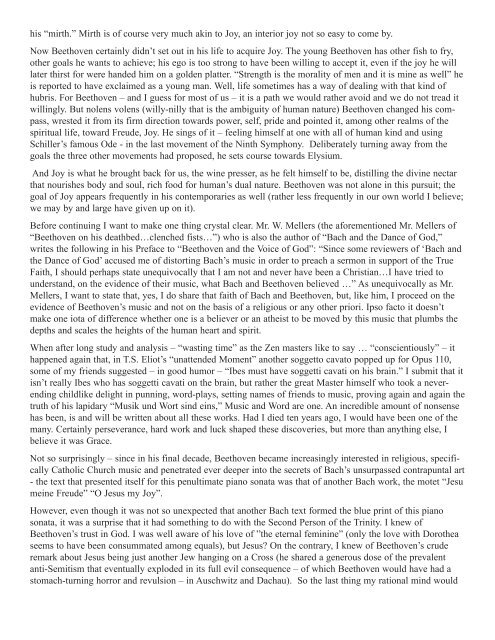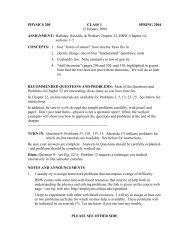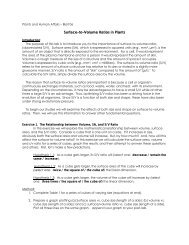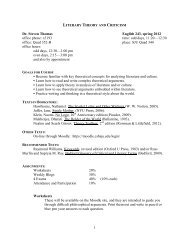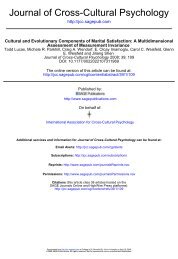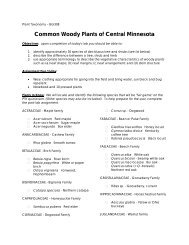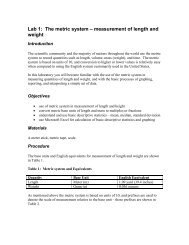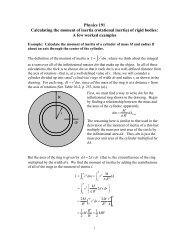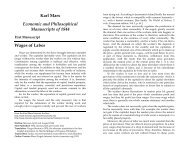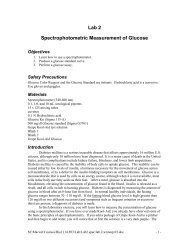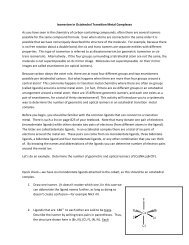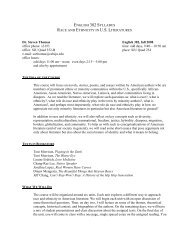A Beethoven Triptych - Employees Csbsju
A Beethoven Triptych - Employees Csbsju
A Beethoven Triptych - Employees Csbsju
Create successful ePaper yourself
Turn your PDF publications into a flip-book with our unique Google optimized e-Paper software.
his “mirth.” Mirth is of course very much akin to Joy, an interior joy not so easy to come by.<br />
Now <strong>Beethoven</strong> certainly didn’t set out in his life to acquire Joy. The young <strong>Beethoven</strong> has other fish to fry,<br />
other goals he wants to achieve; his ego is too strong to have been willing to accept it, even if the joy he will<br />
later thirst for were handed him on a golden platter. “Strength is the morality of men and it is mine as well” he<br />
is reported to have exclaimed as a young man. Well, life sometimes has a way of dealing with that kind of<br />
hubris. For <strong>Beethoven</strong> – and I guess for most of us – it is a path we would rather avoid and we do not tread it<br />
willingly. But nolens volens (willy-nilly that is the ambiguity of human nature) <strong>Beethoven</strong> changed his compass,<br />
wrested it from its firm direction towards power, self, pride and pointed it, among other realms of the<br />
spiritual life, toward Freude, Joy. He sings of it – feeling himself at one with all of human kind and using<br />
Schiller’s famous Ode - in the last movement of the Ninth Symphony. Deliberately turning away from the<br />
goals the three other movements had proposed, he sets course towards Elysium.<br />
And Joy is what he brought back for us, the wine presser, as he felt himself to be, distilling the divine nectar<br />
that nourishes body and soul, rich food for human’s dual nature. <strong>Beethoven</strong> was not alone in this pursuit; the<br />
goal of Joy appears frequently in his contemporaries as well (rather less frequently in our own world I believe;<br />
we may by and large have given up on it).<br />
Before continuing I want to make one thing crystal clear. Mr. W. Mellers (the aforementioned Mr. Mellers of<br />
“<strong>Beethoven</strong> on his deathbed…clenched fists…”) who is also the author of “Bach and the Dance of God,”<br />
writes the following in his Preface to “<strong>Beethoven</strong> and the Voice of God”: “Since some reviewers of ‘Bach and<br />
the Dance of God’ accused me of distorting Bach’s music in order to preach a sermon in support of the True<br />
Faith, I should perhaps state unequivocally that I am not and never have been a Christian…I have tried to<br />
understand, on the evidence of their music, what Bach and <strong>Beethoven</strong> believed …” As unequivocally as Mr.<br />
Mellers, I want to state that, yes, I do share that faith of Bach and <strong>Beethoven</strong>, but, like him, I proceed on the<br />
evidence of <strong>Beethoven</strong>’s music and not on the basis of a religious or any other priori. Ipso facto it doesn’t<br />
make one iota of difference whether one is a believer or an atheist to be moved by this music that plumbs the<br />
depths and scales the heights of the human heart and spirit.<br />
When after long study and analysis – “wasting time” as the Zen masters like to say … “conscientiously” – it<br />
happened again that, in T.S. Eliot’s “unattended Moment” another soggetto cavato popped up for Opus 110,<br />
some of my friends suggested – in good humor – “Ibes must have soggetti cavati on his brain.” I submit that it<br />
isn’t really Ibes who has soggetti cavati on the brain, but rather the great Master himself who took a neverending<br />
childlike delight in punning, word-plays, setting names of friends to music, proving again and again the<br />
truth of his lapidary “Musik und Wort sind eins,” Music and Word are one. An incredible amount of nonsense<br />
has been, is and will be written about all these works. Had I died ten years ago, I would have been one of the<br />
many. Certainly perseverance, hard work and luck shaped these discoveries, but more than anything else, I<br />
believe it was Grace.<br />
Not so surprisingly – since in his final decade, <strong>Beethoven</strong> became increasingly interested in religious, specifically<br />
Catholic Church music and penetrated ever deeper into the secrets of Bach’s unsurpassed contrapuntal art<br />
- the text that presented itself for this penultimate piano sonata was that of another Bach work, the motet “Jesu<br />
meine Freude” “O Jesus my Joy”.<br />
However, even though it was not so unexpected that another Bach text formed the blue print of this piano<br />
sonata, it was a surprise that it had something to do with the Second Person of the Trinity. I knew of<br />
<strong>Beethoven</strong>’s trust in God. I was well aware of his love of ”the eternal feminine” (only the love with Dorothea<br />
seems to have been consummated among equals), but Jesus On the contrary, I knew of <strong>Beethoven</strong>’s crude<br />
remark about Jesus being just another Jew hanging on a Cross (he shared a generous dose of the prevalent<br />
anti-Semitism that eventually exploded in its full evil consequence – of which <strong>Beethoven</strong> would have had a<br />
stomach-turning horror and revulsion – in Auschwitz and Dachau). So the last thing my rational mind would


